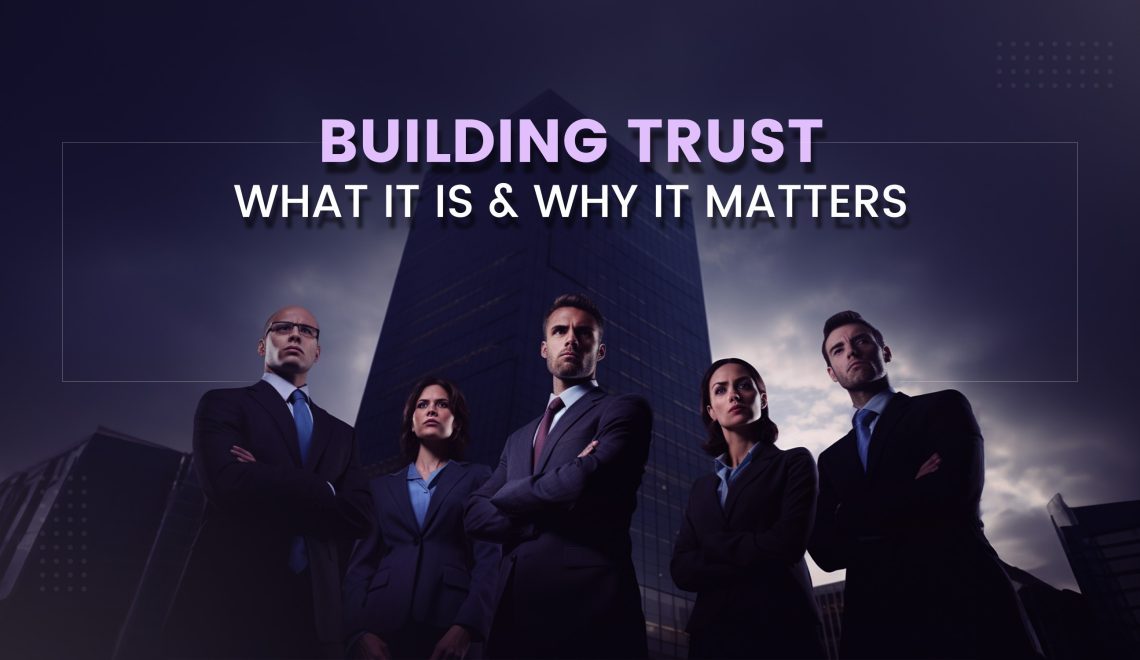
Trust is the foundation of any workplace, enabling a sense of psychological safety and collaboration among team members. When trust is lacking at work, employees hesitate to share ideas and fully engage with each other, which in turn hinders productivity.
So, what does trust at the workplace mean? Trust is confidence in a person’s reliability that is built over time through consistent behaviour. When individuals demonstrate integrity and follow through on promises, they earn respect and confidence, creating a foundation for dependable relationships. To be precise, trust is gained through a conscious effort that is based on integrity, competence, reliability, and transparency.
Consider a situation where a team member commits to delivering a crucial report on a set deadline. When the report is delivered as promised, the team becomes confident in that person’s reliability. This will enable smoother coordinations in the future. But, instead, if the deadline is missed, it causes frustration and distrust, and also impacts the team’s overall performance.
The impact of mistrust on an organization is highly detrimental and undermines the morale and productivity of the workforce. When employees begin to distrust each other or the leadership, it will lead to increased conflict, higher attrition, and reduce the company’s growth potential. Hence, organizations must make a deliberate effort to build trust through consistent actions and transparent communication.
Commitment, actions, and trust
Needless to say, actions speak louder than words. Trust is built through strong commitment that translates to actions. Below are the key aspects that an organization should focus on to build trust.
● Keep up the promises – Honouring commitments is crucial for building trust. When commitments are made, they set expectations that need to be fulfilled. Meeting these expectations will act as a signal of reliability.
● Deliver consistently – Trust is not based on a one-time act. It has to be reinforced continuously through consistent follow-through on commitments. Even a single broken commitment can create doubt and uncertainty and harm the overall morale of the organization.
● Encourage transparent communication – A workplace with clear communication channels enhances collaboration. Employees will have seamless access to the support they need, which makes them more confident in executing their tasks. Transparency also ensures realistic expectations and clear accountability.
● Develop the competencies of employees – Every employee should be provided with the required training for competently handling the tasks assigned to them. This will equip them with the knowledge and skills to meet their commitments and deliver results consistently.
How leaders can embed trust in the organizational culture
Leaders can play a huge role in fostering an environment where trust flourishes. They must consistently model their behaviour by prioritizing values such as transparency, reliability, and accountability, and set the tone for the entire workforce.
Leadership has to embed trust as a crucial factor into everyday practices and policies. The result is a culture which supports mutual respect and enhances employee engagement. In addition, they must actively champion trust as a fundamental value which will create a ripple effect that will be felt across the entire organization.
Employees need constant support and feedback to become confident at work. Leadership must ensure that every employee receives the necessary training and regular updates on their performance, enabling them to meet their commitments. In addition, they can foster collaboration by encouraging employees to extend support and knowledge-sharing to their colleagues.
Planning ahead is crucial to identify issues early and reduce uncertainty. Leaders must anticipate challenges, so that the organization is prepared to handle potential problems. Such proactivity will project a genuine commitment and reinforce trustworthiness.
Furthermore, if any commitment was not met as promised, leadership must ensure transparency about it. The best course of action is to acknowledge mistakes and make corrections without delay, which can help restore confidence.
The way forward
Sustaining trust is a continuous journey that requires ongoing effort. It requires a strong commitment from everyone in the organization to uphold the values of integrity, accountability, and reliability. This will serve as the foundation for creating an environment where work relationships are strong and employees take calculated risks without the fear of judgment. During periods of change and uncertainty, such as market shifts, maintaining trust becomes all the more important, as such phases call for transparency and adaptability to win the confidence of employees and stakeholders.
Prioritize trust as the core principle in your organization to build a resilient and fulfilling work environment.
Frequently asked questions
Why is trust an important factor at the workplace?
Trust promotes open communication and employee engagement. When employees are encouraged to communicate without fear, it leads to innovation, higher productivity, and job satisfaction.
What are the common barriers to building trust at work?
Building trust at work is often deterred due to barriers such as poor communication, lack of transparency, and broken promises. When managers fail to address conflicts or mistakes effectively or show favouritism, it might again impact trust at the workplace.
How can managers build trust within the team?
Managers can build trust by walking the talk and maintaining high standards of integrity at their work. They should be transparent, consistent, and follow through on commitments.



